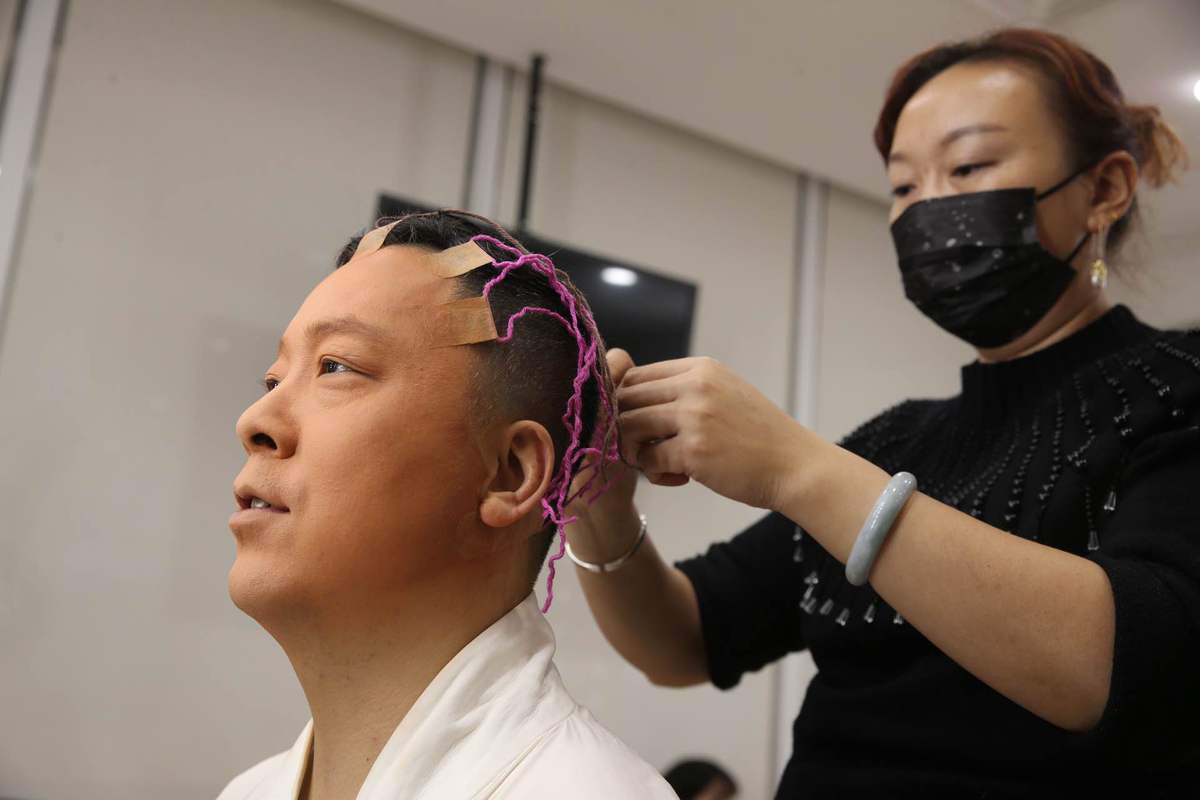 |
|
A makeup artist prepares Qu Peng, a skilled Qinqiang Opera performer, for the stage. [Photo by Huo Yan/China Daily] |
Inspired by the Xinhai Revolution in 1911, launched by Sun Yat-sen, the Yisu Art Troupe, also known as Yisushe, was founded the following year by Li Tongxuan and Sun Renyu, two librettists specializing in Qinqiang Opera.
Hui said, "Different from other art troupes, Yisushe was founded with the aim of making a difference for the country by educating poor people who couldn't afford an education."
She said this principle is still deeply engrained in the minds of every member of the troupe.
"Originality and literariness have served the troupe well, and more than 880 original scripts in over 1,000 volumes are preserved at the theater," Hui added.
Wang Zhi, deputy director of the Xi'an Intangible Cultural Heritage Protection Center, said: "The librettos penned by writers from the Yisu troupe years ago were realistic and mirrored social issues and traditional Chinese values. Preserving them is crucial."
The libretto for Three Drops of Blood, the best-known Qinqiang Opera in Northwest China, tells of a case of wrongful conviction in which justice finally prevails. The original manuscript has been preserved and is on display at the Museum of Yisushe in Xi'an.
"For future studies and protection work, we should make more efforts to research Qinqiang Opera scripts that have been preserved," Wang added.